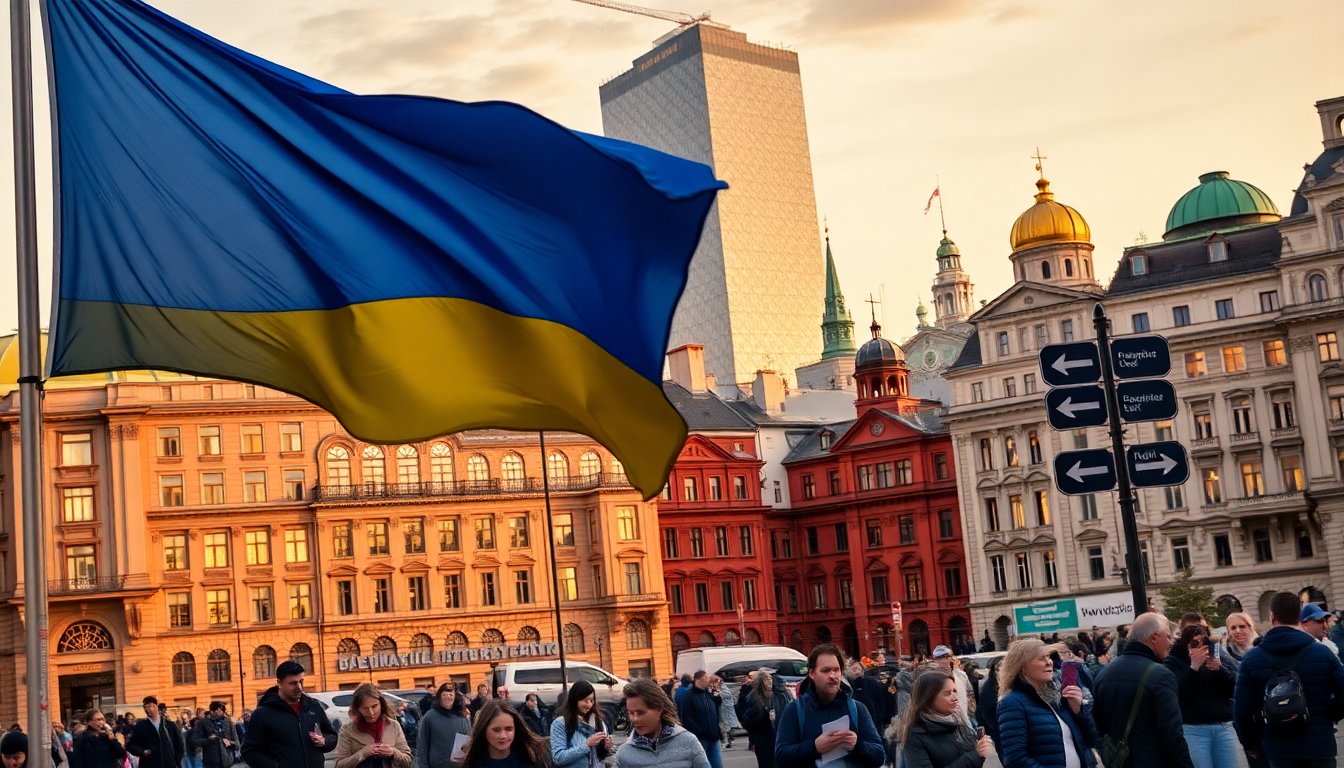Table of Contents
Ukraine is at a critical juncture, seeking to secure approximately $200 billion in funding from European sources while facing troubling allegations of corruption. As the Russian invasion persists, the urgency for financial assistance has intensified. However, the integrity of the Ukrainian government is under scrutiny, raising concerns among European leaders.
Discussions in Brussels have underscored the European Union’s commitment to assist Ukraine. EU Commissioner Valdis Dombrovskis emphasized that the funding need is both pressing and substantial. Since the onset of the conflict, the EU has pledged about €178 billion in various forms of aid, including military, humanitarian, and financial support. Nevertheless, ongoing corruption scandals in Ukraine are prompting European officials to reconsider the conditions attached to this assistance.
Corruption allegations complicate funding strategy
The European Commission is closely monitoring a corruption investigation in Ukraine that has implicated several high-ranking officials, including ministers in key sectors such as energy and justice. These officials resigned amid allegations of involvement in a substantial corruption scheme that reportedly misappropriated public funds. This scandal has eroded the credibility of the Ukrainian government and undermined the trust European nations place in Ukraine as a recipient of aid.
In response to these developments, the EU is contemplating stricter oversight of funds allocated to Ukraine. Paula Pinho, a spokesperson for the European Commission, stated that combating corruption is essential for any country aspiring to join the EU. The Commission’s zero-tolerance policy for irregularities underscores the necessity of ensuring that assistance is not misappropriated.
Military struggles amid political turmoil
The battlefield situation exacerbates the urgency for financial aid. Reports indicate that Ukrainian forces face severe challenges, particularly in strategic locations such as the Donetsk region. General Fabio Mini has expressed concerns about the dire circumstances confronting the Ukrainian military, noting that troops are encircled and under significant pressure. Despite reassurances from Ukrainian military leaders, the reality on the ground presents a much grimmer picture.
Concurrently, political dynamics are shifting. Matteo Salvini, leader of the Italian political party Lega, has publicly expressed apprehension regarding the potential misuse of Italian taxpayer money to support a government entangled in corruption. He advocates for peaceful dialogue between Ukraine and Russia, suggesting that direct negotiations could lead to a cessation of hostilities rather than merely supplying more weaponry.
International response and implications
The international community is closely observing the situation as investigations into the alleged corruption proceed. The United States and its allies are weighing the implications of continued military support against the backdrop of these scandals. Concerns persist that funds intended to bolster Ukraine’s defenses may instead reinforce a corrupt system.
As tensions escalate and military engagements intensify, the question remains whether the EU and other nations will continue to support Ukraine despite the apparent risks. The outcomes of ongoing investigations and the Ukrainian government’s response will significantly influence the future of international aid.
Looking ahead: A critical moment for Ukraine
Ukraine stands at a crossroads, with both its military struggles and political integrity under scrutiny. The potential for a financial lifeline from Europe is overshadowed by fears of corruption, which could jeopardize not only the assistance needed for survival but also the country’s aspirations for a more stable future within the European framework.
The path forward for Ukraine necessitates not only immediate military and financial support but also a commitment to transparency and accountability. Addressing the root issues of corruption is vital for the long-term viability of Ukraine and its relationships with European allies.


